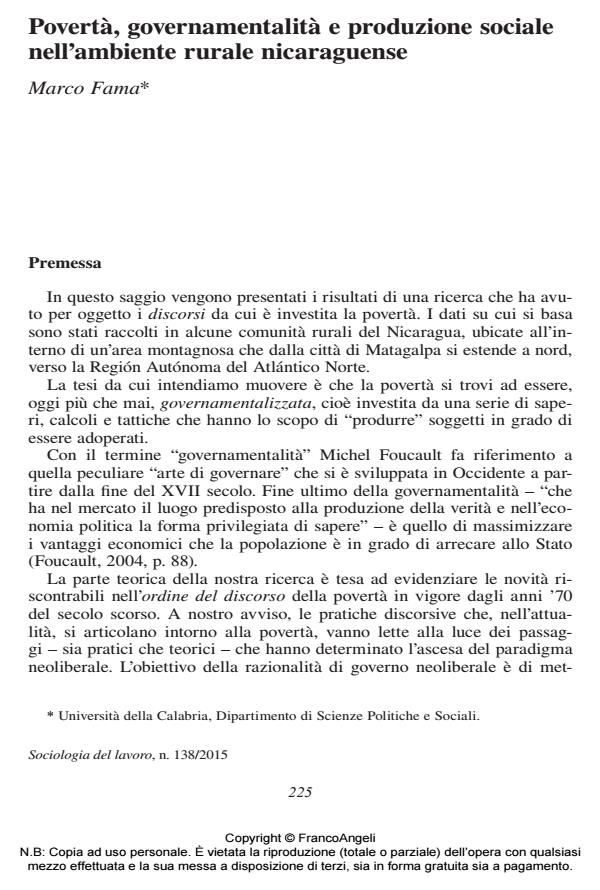Poverty, Governmentality and Social Production in Nicaraguan Rural Communities
Journal title SOCIOLOGIA DEL LAVORO
Author/s Marco Fama
Publishing Year 2015 Issue 2015/138
Language Italian Pages 15 P. 225-239 File size 103 KB
DOI 10.3280/SL2015-138014
DOI is like a bar code for intellectual property: to have more infomation
click here
Below, you can see the article first page
If you want to buy this article in PDF format, you can do it, following the instructions to buy download credits

FrancoAngeli is member of Publishers International Linking Association, Inc (PILA), a not-for-profit association which run the CrossRef service enabling links to and from online scholarly content.
The article examines the discourses upon poverty, supporting the thesis that poverty has become subject to a system of knowledge and techniques of government that have been reconstructed through neoliberal ideology and seek to produce entrepreneurial subjectivities to subsumes to the market logic. Making reference to foucaultian categories, the author alludes to key moments from the 1970s onwards that have led to the rise of a new order in the discourse about poverty that hinges on the figure of the "poor" - who is represented as uneducated and without initiative. Presenting the results of empirical research carried out in rural communities in Nicaragua, then, the author shows how the dominant discourse about poverty is concretely interiorised and re-formulated from below, by subjects that are willing to take sole responsibility for their own condition.
Keywords: Poverty, discursive practices, governmentality, subjectification, Nicaragua, rural communities
Marco Fama, Povertà, governamentalità e produzione sociale nell’ambiente rurale nicaraguense in "SOCIOLOGIA DEL LAVORO " 138/2015, pp 225-239, DOI: 10.3280/SL2015-138014